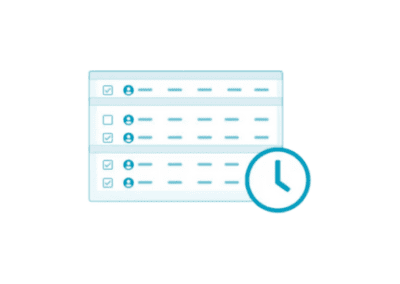Employee morale often gets overlooked as an important factor for success in all organizations. In a world where turnover, burnout and workplace stress are at an all time high, keeping your employees happy is vital. So what can you do to improve employee morale? This blog post will give you some answers on how you can achieve this and by doing so, increase employee engagement in the workplace.
“Always treat your employees exactly as you want them to treat your best customers.”
Stephen R. Covey
Employee Morale

Employee morale relates to employees’ overall level of satisfaction in work and has a direct impact on engagement, productivity, and retention. Time and time again studies have shown that when employees are satisfied they are more productive and less likely to leave. On the other hand, when morale is low, teams’ productivity will decrease and employees will lose interest.
Making employees feel good at work isn’t just good for the employee but for the organization as a whole. It creates a company culture that attracts the right talent and retains existing staff. In addition, company culture is really important for employee morale as valued employees will be motivated to do good work.
Monetary rewards can be great in motivating teams, however; we know this is not always feasible or necessary. So here are some ways you can improve employee morale without breaking the bank.
How to Boost Employee Morale
Communication
Productive teams all have one thing in common – good communication. This means good communication between manager and employee, as well as between colleagues. In an article by Michael A. Crumpton, he highlights the value of transparency in good leadership, especially during times of change or stress. Good communication motivates teams in a positive way despite difficult periods. Employees should know their company strategy and be reminded constantly of the goals and objectives they are expected to meet. As well as this you should listen to your employees and hear their concerns. This again, makes employees feel more than just a number at work which improves morale.
Collaboration
Don’t let your employees work in silos – collaboration is a proven way to improve employee morale. Each of your employees has a varying skill set and experience that can contribute to your project. One person’s gap in knowledge is another person’s area of expertise. For example, allow your marketing team to work with the sales team to find out more about your customers. Breaking down walls within your organization will create new connections and a more open workplace.
Creating an open workplace is the answer to boosting employee morale according to Brian O Connell from CustomerThink.com. He maintains companies should “Facilitate healthy, two-way communication between employees, managers, and department heads and make sure that your managers understand the importance of encouraging team members to reach out with their thoughts and opinions”.
Recognition
65% of employees prefer non-monetary incentives instead of monetary rewards”.
Incentive Research Federation

We all like recognition for a job well done and your employees are no different. Recognize your employee’s hard work and they will feel valued. Sure, monetary rewards are great but they are not necessary to boost morale. Gone are the days when the only thing that motivated staff was money. Nowadays people want simple recognition for the tasks they perform.
In fact, according to a study by the Incentive Research Federation for the Incentive Marketing Association, “65% of employees prefer non-monetary incentives instead of monetary rewards”. It is also shown that non-monetary compensation helps retain employees in the long run. For example, an extra day off or getting an award is more memorable and impactful to employees than a gift card they won’t remember what they spent on. This is a relatively fun and easy way to boost employee morale!
These thoughtful rewards give employees a better impression of the company and will lead to positive word of mouth about the organization. Another positive benefit is that it is a motivating factor to other employees who did not receive an award this time round to work hard for the next one.
Feedback
Another way to boost employee morale is to spend time giving your employees feedback on their performance. Similar to recognition, it will make the employee feel more engaged with work and give them a better understanding of where they can improve.
Public feedback like we mentioned before is great but individual feedback is also crucial for your team to boost their morale. An interesting study was carried out by Harvard Business Review shows how little recognition goes a long way and how productivity levels rose when managers gave their employees simple thank-you notes on all their hard work.
Make sure you have regular 1:1 meetings with everyone on your team to not only evaluate their performance but ask them if they need any help from you. This makes them feel listened to and more engaged in work.
Comfort in the workplace

Humans are social beings who spend so much of their life at work. So make sure the workplace is a nice place to be. Small things make a big difference like ensuring your office space is well-lit and well-ventilated. Ensure your office furniture like desk chairs is comfortable and ergonomically friendly. The same goes for if your team works from home – ensure they have all the necessary equipment to do their jobs from home safely.
Whether at home or in the office, employees these days expect flexibility. More and more people are opting towards a hybrid work environment which is great as it allows employees the choice about where to work. Another example of flexibility is allowing your employees to choose their own hours, this is great, especially for shift workers. If you are using employee scheduling software, you should look for one with shift scheduling that allows employees to pick up their own shifts. Celayix offers this feature as well as many more. If you’d like to see those features in action, sign up for a free live demo, or free trial today!
Improving your employee morale through non-monetary rewards will do nothing but good things for your business. It contributes to a positive work-life balance, high employee engagement, and retention, and higher overall job satisfaction. It’s never too soon to start working on employee morale. The sooner you start, the sooner you see improvements in your bottom line!




